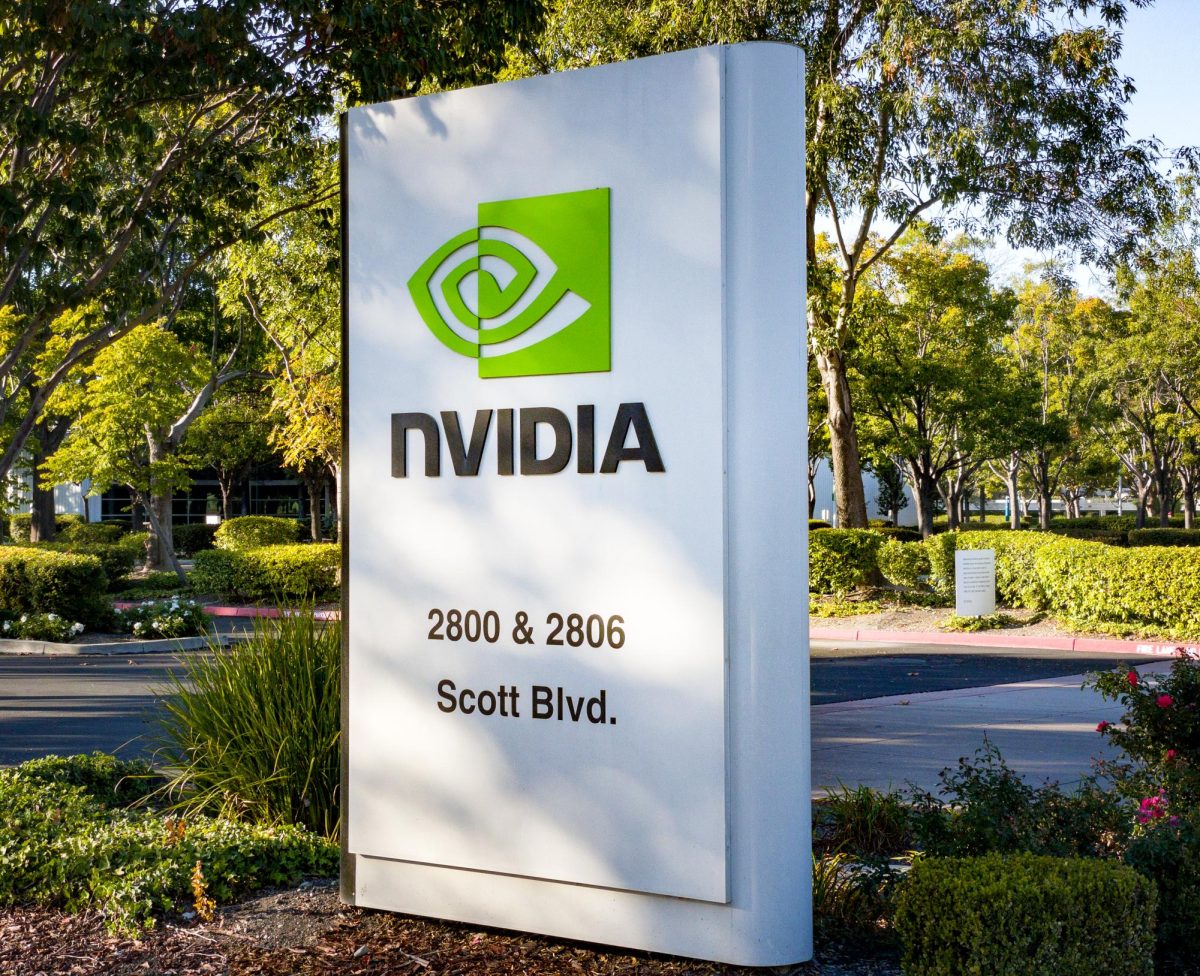Nvidia Corp., which dominates over 70% of the market share for AI chips, reported triple-digit revenue growth in its latest earnings report, cementing its position as one of the fastest growing tech companies in recent years.
The company reported a revenue of more than $30 billion, which is up 122% from the same period last year, surpassing analysts’ forecasts of $22.8 billion. Net income doubled to more than $16.6 billion, or 67 cents per share, from last year’s $6.18 billion or 25 cents per share.
Shortly after the earnings release, Nvidia shares fell 8%. The company’s market cap fell from $3.1 trillion to $2.6 trillion, wiping out billions of dollars from its stock market value.
The company’s partial recovery from its drop helped boost other tech stocks and chipmakers on Thursday. By midday, Google, Apple, Amazon and Arm Holdings all saw their stock prices rise.
Despite the chip maker’s unprecedented growth over the past few years, its pace is slightly slowing, disappointing Wall Street, which had anticipated even greater returns on investments.
Even with higher revenues, investors are becoming more reserved and cautious about investing large amounts in the AI sector, fearing it could be overvalued.
As the demand for AI chips surged in recent years, Nvidia became one of the front runners of this innovation. But with the roll out of its newest creation, Blackwell, the next-generation AI chip, the company started seeing slower growth and production delays.
Nvidia’s Blackwell chips, which comprise 208 billion transistors for training its language model, will be delayed several months past the January release date. The company’s CEO Jensen Huang had previously stated that Blackwell would bring significant revenue for the business this year.
Nvidia makes up about 6% of the total value of the S&P 500 index and has helped drive its gains this year, after rising more than 160% over the past 12 months, but dragged it down losing over 8% per share in early September.
Despite growing concerns, Huang expressed positive projections in an interview with Bloomberg.
“The demand for Blackwell far exceeds its supply.” He added, “None of that would be possible without strong demand, but also very strong supply. We are expecting Q3 to have a stronger supply than Q2 and Q4 to have a stronger supply than Q3. Next year we will have a large improvement over last year.”
While AI technology capabilities remain in uncharted territory, promising to change many industries, the question remains about the extent of its economic impact. This innovation is still in its early stages, and while excitement remains strong, it is gradually waning.
Categories:
Nvidia’s slow growth, production delays worry investors despite strong earnings
September 16, 2024
More to Discover








